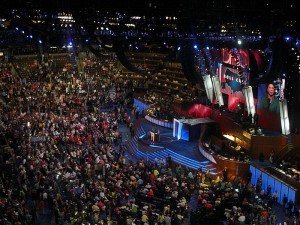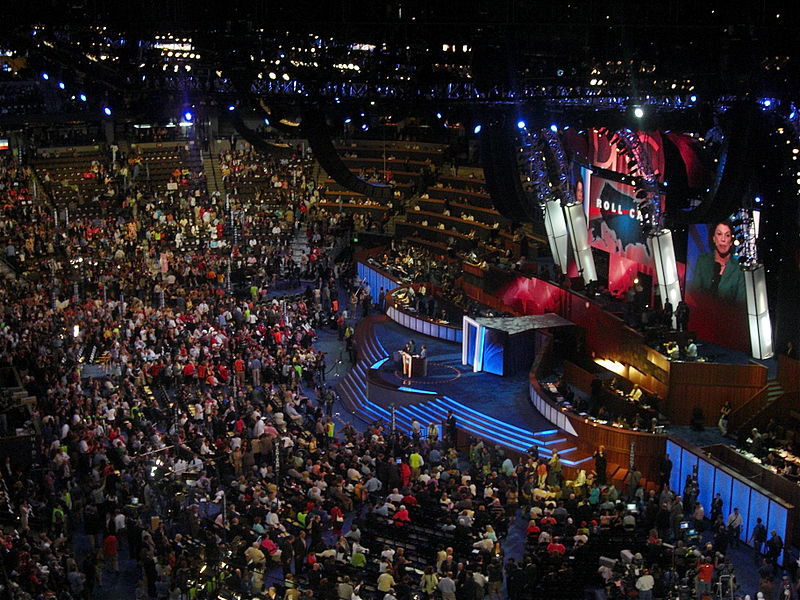
In case you hadn’t heard, 3% of potential voters turned out in Rhode Island’s presidential primary on April 24th. Rhode Island runs open primaries, where unaffiliated voters can temporarily affiliate on primary day with the party of their choice, so virtually every voter but those registered as Moderates had the ability to vote. The two primaries were different affairs, though, so each has their own issues.
On the Democratic side, only Barack Obama was available (or no one/write-in). But all the available delegates were pledged to Obama. This means that all delegates were going to vote for Obama anyways. So in this case, why care who goes? Since 1968, Democrats have ensured that they wouldn’t ever have to face the chaos of a brokered convention again, de-emphasizing the importance of the delegates.
On the Republican side, the math has essentially made Mitt Romney the victor this primary season. Though Ron Paul managed to pick up some delegates, even RI GOP chair Mark Zaccaria was worried at the low turnout.
It appears to me that the parties are facing a lack of enthusiasm, though RI Tea Party founder Colleen Conley assures me on Twitter that the Tea Party (not really a political party) will crush the Democrats in November. I’m skeptical.
There’s not much to get excited about this election season. My college broke out into a spontaneous celebration in November 2008, and I remember thinking, finally, we won. Now that just seems naive. Neither base can be truly energized when it’s essentially to go vote against someone. We need to want to vote for something.
I think part of the problem is that parties aren’t really distinct parties anymore. If you register as a Democrat, are you actually involved in the Democrats? Do you get to set the platform of your local party? Do you elect the party leadership? Do you decide who will become Speaker of the House if they’re in the majority? Of course not. Only two types of people make those decisions in a modern American political party; party apparatchiks and political candidates.
So when you register as a Democrat, you’re not actually a member of the Democratic Party, you are a voter affiliated with the Democratic Party. Yes, you can select its candidates (a privilege made less relative by open primaries), but you’re essentially powerless over the operations of the party. This is why organizations like the Progressive Democrats of America exist, to counteract the party establishment. This is also why some states have moved towards the jungle primary, essentially making parties vestigial organs.
Parties don’t have to be organized like this. It would be perfectly possible to make a political party function as a democratic organization; where the chair and the leadership are elected by all of the party’s members. The same thing could happen for legislative delegations; the Rhode Island Democrats could be allowed to select who they want to be Speaker of the House or President of the Senate in an election, choosing between candidates from among the Democratic representatives and senators. Party platforms could likewise be suggested and voted upon by party members in the same way a ballot question appears; “would you like the Democratic Party to include in its values a commitment to the equal rights of LGBTQ citizens, including the right of marriage?”
So yes, the criticism that political parties don’t represent the people is accurate; they don’t even represent the people who are registered as their voters. Because those aren’t their members. Their members are the networkers and the political players who really burrow deep inside of the party. And yes, they get paid poorly and have pretty crappy jobs. They get to inhabit these positions because they step up to the plate.
But at the end of the day, if you want your voters to have enthusiasm for their party, if you want them to turn out to the polls no matter the situation, you have to give them agency. It’s the same reason that the Green Bay Packers have their seats sold out for a century; by making the team owned by the fans, they gave their fans agency in their organization. Political parties need to demand participation, open discussion, and activity from their members. They cannot afford to take them for granted.

